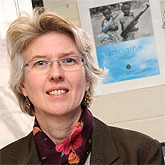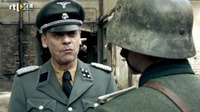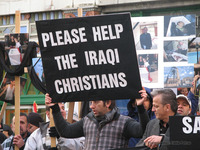Presented by Barbara Frey, Director, Human Rights Program
Thursday, October 2
3:00p.m.
Room 710 Social Sciences

The presentation is the first of the 2014-2015 workshops for the Holocaust, Genocide and Mass Violence Studies (HGMV) Interdisciplinary Graduate Group.
Professor Frey will explore the social and political context or "terrain" in which human
rights actors work in Mexico and the barriers to their success in protecting human rights on the ground. She will show how this terrain affects advocacy by describing one particular case, the campaign for due process reforms in the criminal justice system. Frey's central finding is that the terrain of human rights advocacy in Mexico is profoundly "uneven" - characterized by asymmetries of power that limit the effectiveness of the human rights movement to bring about sustainable human rights protections.
Barbara Frey is Director of the Human Rights Program in the College of Liberal Arts at the University of Minnesota. Frey has headed the Program since it was established in 2001, for the purpose of providing academic, research and outreach opportunities for students in the field of international human rights.
The HGMV workshop was founded to foster interdisciplinary conversations on the subject areas of Holocaust studies, genocide and memory, peace and conflict studies, human rights, nationalism and ethnic violence, representations of violence and trauma, conflict resolution, transitional justice, historical consciousness and collective memory.
For more information about HGMV please email Erma Nezirevic at nezir001@umn.edu.


